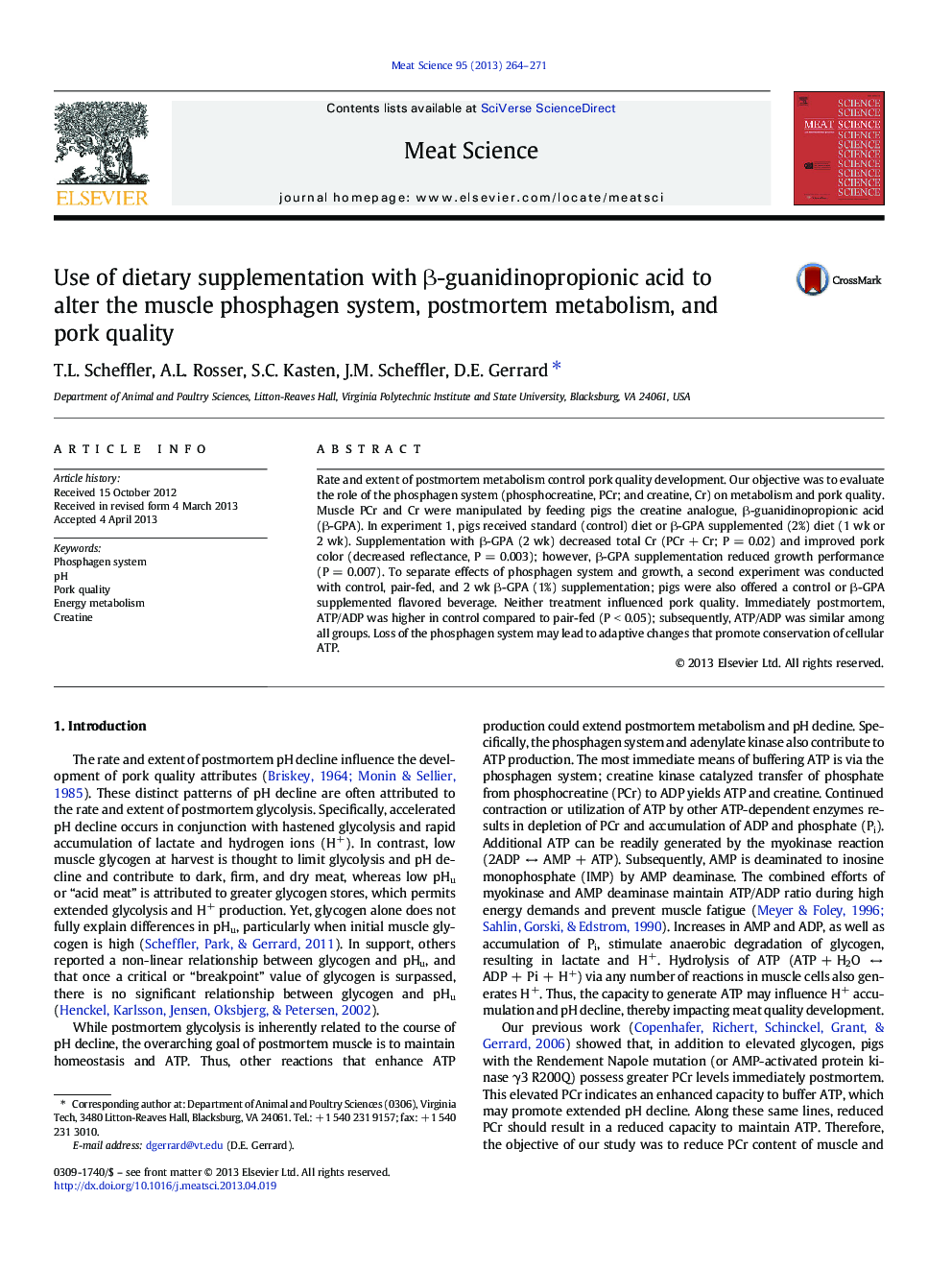| Article ID | Journal | Published Year | Pages | File Type |
|---|---|---|---|---|
| 5791687 | Meat Science | 2013 | 8 Pages |
â¢We used β-GPA to determine the role of phosphagen system in postmortem metabolism.â¢Feeding the creatine analogue β-GPA reduced total muscle creatine.â¢Dietary β-GPA reduced feed intake and growth.â¢Reductions in total muscle creatine did not hasten glycolysis or pH decline.â¢Decreasing muscle creatine using β-GPA may trigger compensatory means of conserving ATP.
Rate and extent of postmortem metabolism control pork quality development. Our objective was to evaluate the role of the phosphagen system (phosphocreatine, PCr; and creatine, Cr) on metabolism and pork quality. Muscle PCr and Cr were manipulated by feeding pigs the creatine analogue, β-guanidinopropionic acid (β-GPA). In experiment 1, pigs received standard (control) diet or β-GPA supplemented (2%) diet (1 wk or 2 wk). Supplementation with β-GPA (2 wk) decreased total Cr (PCr + Cr; P = 0.02) and improved pork color (decreased reflectance, P = 0.003); however, β-GPA supplementation reduced growth performance (P = 0.007). To separate effects of phosphagen system and growth, a second experiment was conducted with control, pair-fed, and 2 wk β-GPA (1%) supplementation; pigs were also offered a control or β-GPA supplemented flavored beverage. Neither treatment influenced pork quality. Immediately postmortem, ATP/ADP was higher in control compared to pair-fed (P < 0.05); subsequently, ATP/ADP was similar among all groups. Loss of the phosphagen system may lead to adaptive changes that promote conservation of cellular ATP.
